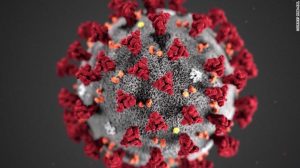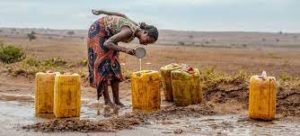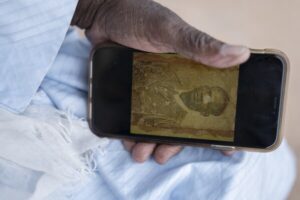In every conquered city, a massacre followed
The Rapid Support Forces are on the march.
This is the mostly ethnic-Arab paramilitary group which grew out of the Janjwaweed militia that perpetrated the Darfur genocide 20 years ago. Since April, the RSF and the Sudanese Armed Forces have been fighting a civil war for control of Sudan. At present, the RSF controls much of Khartoum, the capital. The Sudanese Armed Forces control the major seaside city, Port Sudan, in the east of the country.
To the west in Darfur, the RSF clearly has the upper hand and are now poised to take control of the entire region. And it is here where the patterns of the 2003 Darfur genocide are being repeated today.
Nearly 450,000 people have fled across the border to Chad. These refugees are mostly from the non-Arab Massalit tribe that has been systematically targeted by the RSF in well documented cases of ethnic cleansing. Entire villages have been burned to the ground. Human Rights Watch has reported a campaign of sexual violence targeting Massalit women. Summary executions are rampant. Mass graves are littered throughout the region.
In one massacre in the city of el-Geneina, RSF soldiers emptied the city of its Massalit population and shot civilians as they fled. This was a major mass atrocity event that was reconstructed two months later in a vivid CNN report based on open source investigations and survivor testimony.
Human rights groups whose job it is to monitor the potential outbreak of genocide have been warning about a high risk of genocide in Darfur. Senior African, European and American officials have spoken out against this violence, but there has been little meaningful action to stop the ongoing atrocities. To the contrary, atrocities committed by the RSF against the Massalit people have been accelerating in recent weeks.
After the el-Geneina massacre in June, thousands of Massalit fled to Ardamata, a suburb that housed a Sudanese Armed Forces garrison. In early November, the RSF overran that base and commenced a massacre of Massalit civilians who sought the protection of the Sudanese Armed Forces.
A new Human Rights Watch report details what happened:
From November 4, after the Rapid Support Forces and militia gained control of the Sudanese Armed Forces base, they went on a rampage through the camp for displaced people, and other residential areas, all largely inhabited by Massalit and other non-Arab groups.
Survivors said that the Rapid Support Forces and allied forces shot at civilians as they fled and executed people in their homes, shelters, and in the streets. Survivors said attackers insulted the Massalit, and in some instances said they wanted to “kill Massalit.” The assailants killed primarily Massalit men, but two people interviewed said that people from non-Arab groups, notably ethnic Tama and Eringa, were also killed and injured.
“The Rapid Support Forces’ latest episode of ethnically targeted killings in West Darfur, has the hallmarks of an organized campaign of atrocities against Massalit civilians,” Mohamed Osman, a senior researcher with Human Rights Watch said in the report.
A Final Battle Looms
The attack on Ardamata was part of a fall offensive by the RSF that resulted in the capture of nearly every major city in the entire Darfur region—an area the size of France. The last remaining city not yet under RSF control is el-Fasher, a regional capital. The RSF is at present massing near the city and signaling their intent to attack. If and when the RSF overruns el-Fasher, it would be reasonable to expect a similar pattern of violence that befell other cities in Darfur in recent weeks — that is, massacres of civilians and ethnic cleansing that may cross the threshold of genocide.
The RSF’s battlefield successes can be partly attributed to the support they receive from the United Arab Emirates. The RSF and UAE have long ties. Before it fought for control of Sudan, the RSF was a regional military-for-hire and the UAE employed the RSF to advance its interests in both Yemen and Libya. The UAE is also a major importer of gold from Sudan, much of which comes from mines in Darfur controlled by the RSF. In 2019, the NGO Global Witness exposed the RSF’s secret financial network, which reached deep into the UAE.
In recent months, several credible media outlets and independent organizations have found evidence of UAE arming the RSF in direct violation of UN sanctions. (And doing so rather egregiously under the guise of providing humanitarian aid). The UAE vigorously denies these accusations.
Given the UAE’s ties to the RSF, one potential opportunity for diplomatic engagement on this crisis would be the UN climate conference, COP28, which begins today in Dubai. But the UAE’s relationship to a genocidal militia that is on the verge of conquering all of Darfur has not featured prominently in public diplomacy leading up to COP28. A White House readout of a phone call yesterday between President Biden and President Mohamed bin Zayed of the United Arab Emirates mentioned COP28, the hostage deal and humanitarian pause in Israel and Gaza — but made no reference to the unfolding disaster in Darfur.
By the numbers, the war in Sudan is the worst humanitarian situation in the world. Over 5 million people are internally displaced and over 1.2 million people have fled Sudan all together. More than half the population, nearly 25 million people, are in need of some form of humanitarian assistance. And on top of it all, a probable genocide — the crime of all crimes(!) — is driving this situation deeper into the abyss.
It is a profound indictment of our foreign policy community that this crisis is seemingly so far off the radar. To be sure, the broader humanitarian community are deeply engaged in this crisis and there’s been some vital reporting. But it has not captured much diplomatic or political attention — at least not commensurate to the sheer scale of the unfolding disaster.
We can do better. We must.
I cut my teeth as a journalist in the mid-aughts covering the international response to the 2003-4 Darfur Genocide. Today, the same forces responsible for the Genocide are back in action, wreaking destruction in Darfur in ways reminiscent of 20 years ago.
A systematic and organized campaign of ethnic cleansing is again underway in Darfur. We will bear witness by offering original reporting and expert analysis. To support our work purchase or upgrade your subscription. We depend on your support.




